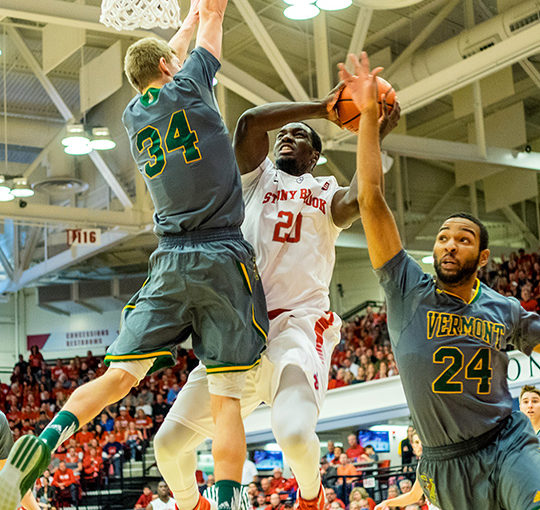Managing Uncertainty in Basketball
Basketball players, like the rest of society, live in uncertain times. Whereas some players embrace uncertainty a common response is to worry repeatedly and habitually and even strategically in an attempt to create a state of certainty out of a state of uncertainty. This is not particularly helpful.
In this article, I will propose three psychologically healthier ways for basketball players to manage current COVID-related uncertainty.
-

Photo: John Feinberg Acceptance
When dealing with uncertainty our typical response is an instinctual drive to impose order and regain control. As creatures in an unpredictable natural world, we humans have consistently sought the related reassurances provided by order and control even though at times – like the present – order and control appear to be beyond our grasp. In fact, they are.
The 13th-century poet Rumi wrote that “the wound is where the light enters you” reminding us that we can grow and learn from forms of discomfort, so long as we accept them. So rather than focusing solely on eradicating uncertainty because it may be a form of discomfort maybe you could instead focus on trying to change your relationship with it to one of acceptance? Uncertainty in sport as in life is after all inevitable.
- Emotional Intelligence
Another coping strategy for dealing with uncertainty is working on your emotional intelligence. Emotional intelligence in sport is undervalued and perhaps misunderstood. Emotionally intelligent athletes do not allow themselves to become preoccupied with the uncertainties that they face. Instead, amongst other things, they stay positive, they don’t dwell on problems, they don’t seek perfection, they reach out to people for practical help or emotional support as required and they embrace what they cannot control. The good news for basketball players is that emotional intelligence in sport is attainable and can be learned.
- Reframing
Reframing is a psychological technique that consists of identifying and then changing the way situations, experiences, events, ideas, and/or emotions are viewed. When experiencing uncertainty one reframing technique is openness. In this instance openness to the possibility that uncertainty could be a positive force in the sense that the future is uncertain and consequently there is scope for you to use uncertainty productively to make real positive differences in your sporting life.
Whereas some athletes (and managers and coaches) acknowledge uncertainty but become fearful and disempowered by it, it is notable that others respond openly, creatively, and acceptingly and that they ultimately derive enormous benefit from doing so.
You appear to have a choice.
Fergus McGrath provides a range of sports-related Cognitive Behavioural Services in-person and online. He is a Cognitive Behavioural Therapist, a sports coach, and a sports coach tutor. Further information is available at www.cogbeh.com.












